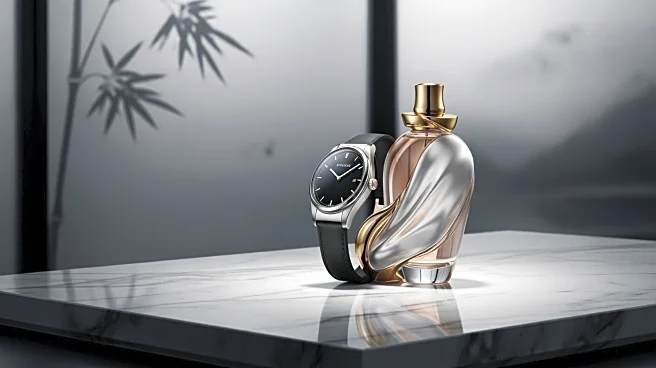What's Happening?
Luxury brands are employing innovative strategies to stimulate spending recovery in China, focusing on economically resilient high-earners. Louis Vuitton's new ship-shaped store, The Louis, exemplifies
this trend by combining high-end retail with eateries and exhibition spaces, attracting 60% new clients. This approach is part of a broader shift where brands like LVMH and Hermès offer personalized experiences, such as intimate dinners and exclusive shopping areas, to deepen engagement and improve sales per store. Despite a decline in the proportion of luxury goods sold to mainland Chinese consumers, brands are creating their own recovery by delivering richer, immersive experiences.
Why It's Important?
The strategic initiatives by luxury brands in China are crucial as they aim to recover from a post-pandemic sales slump. By transforming retail experiences, these brands are not only targeting high-earners but also adapting to changing consumer behaviors. This shift is significant for the luxury sector, which has seen a decline in sales due to global economic uncertainties and changing trade policies. Brands that innovate and invest during downturns are likely to gain market share, even if overall revenue growth remains flat. This could lead to a reshaping of the luxury market dynamics, with successful brands optimizing and innovating to outperform competitors.
What's Next?
Luxury brands are expected to continue their focus on creating unique and personalized experiences to attract consumers. As the Chinese economy remains fragile, brands will likely emphasize market share over growth, leveraging favorable exchange rates and domestic stock rallies to boost consumer confidence. The sustainability of these strategies will depend on ongoing economic conditions and geopolitical factors. Brands that successfully adapt to these challenges may solidify their presence in the Chinese market, potentially influencing global luxury trends.
Beyond the Headlines
The transformation of luxury retail experiences in China highlights broader cultural and economic shifts. As brands focus on personalized and immersive experiences, they are redefining consumer expectations and engagement. This trend may lead to long-term changes in how luxury brands operate globally, emphasizing value and experience over traditional sales models. Additionally, the focus on high-earners and VIPs raises ethical considerations about inclusivity and accessibility in the luxury sector.










